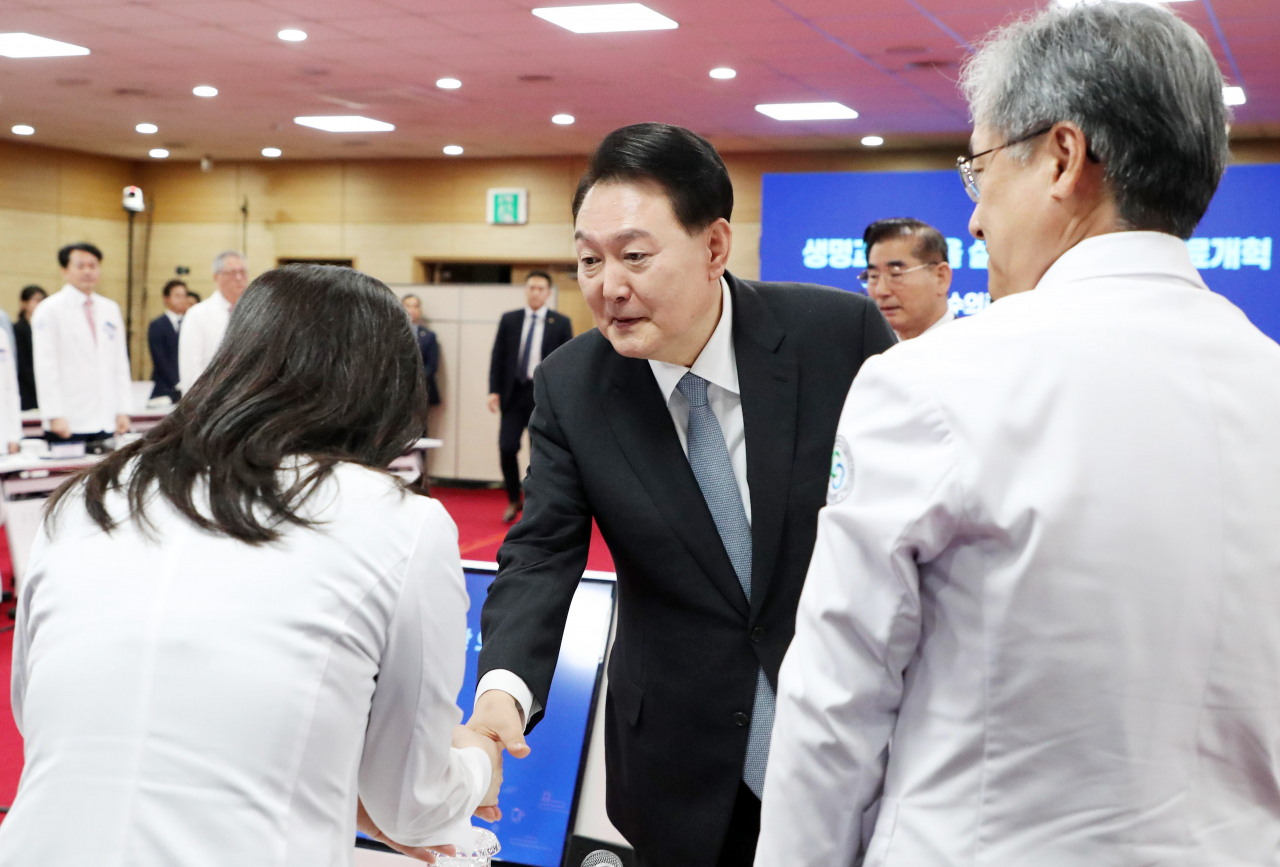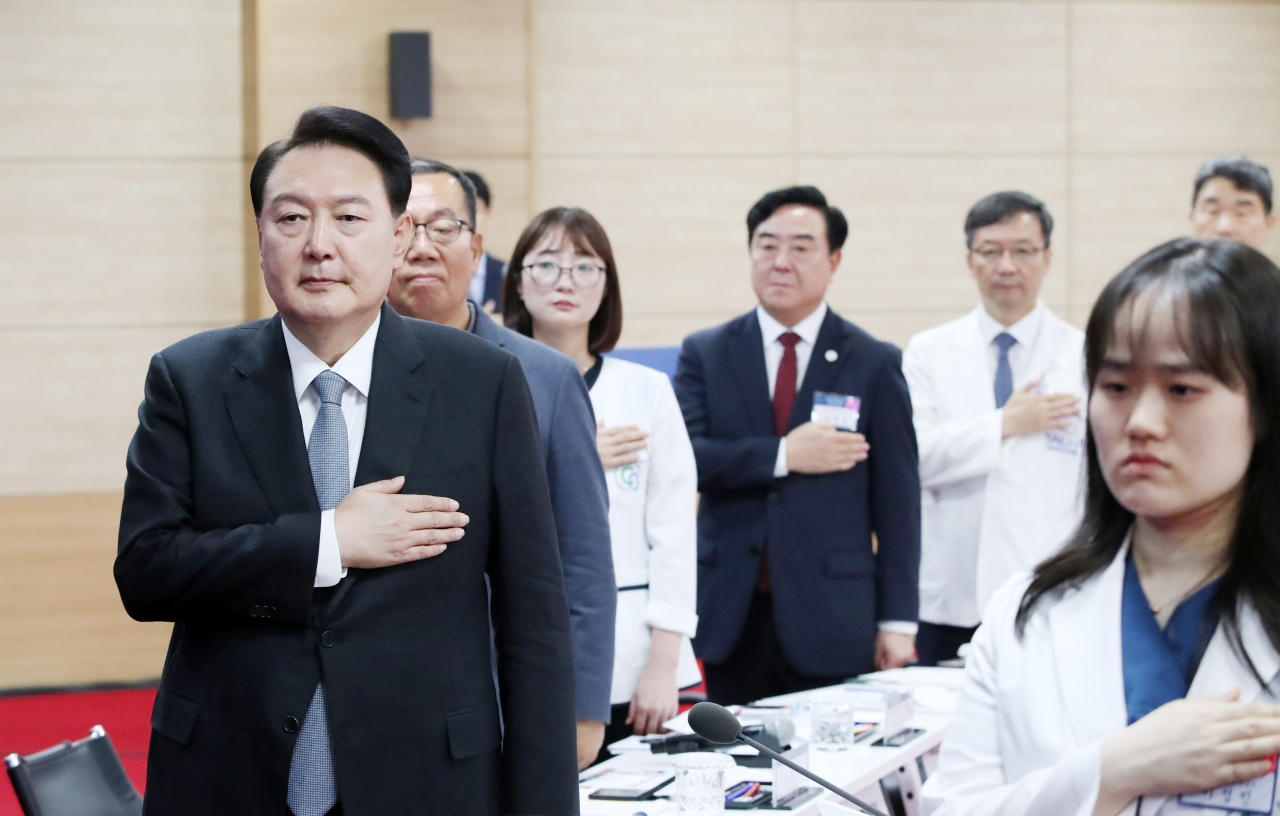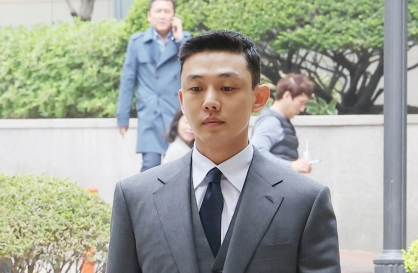Yoon vows to bridge health equity gap by backing regional university hospitals
Number of doctors to be added not clarified in plan to boost medical force amid opposition from doctors' advocacy groups
By Son Ji-hyoungPublished : Oct. 19, 2023 - 12:22

President Yoon Suk Yeol on Thursday vowed to address a health care service shortage in remote areas by empowering state-funded university hospitals outside of Seoul to improve the health care delivery system.
While addressing the need to increase the number of doctors, the presidential office, however, did not announce a plan to increase the medical school quota amid opposition from doctors' advocacy groups.
The government's rationale for expanding the medical school quota is that the country is facing a shortage in the number of doctors. South Korea has 2.6 doctors per 1,000 people, according to a 2022 estimate. This is lower than the average of 3.7 among the Organization for Economic Cooperation and Development member countries. The doctors' advocacy group, however, asked the government to find ways to better compensate physicians instead of increasing the quota, citing the likelihood of the quota expansion undermining the quality of medical services.
Presiding over a meeting with Cabinet members, lawmakers, heads of national university hospitals and other medical experts, Yoon stressed the need to narrow the gap in accessibility to medical services between urban and remote areas in the face of an aging population, according to Yoon's office.
"The health care system (which should) ensure essential medical services directly related to the lives of people in local communities is collapsing," Yoon said at Chungbuk National University, one of 17 national university hospitals, in Cheongju, North Chungcheong Province. Of those 17, 16 are based outside of Seoul as teaching hospitals affiliated with universities.
"We are seeing a shortage in doctor supply in critical medical fields, and people in remote areas are unable to get timely medical treatment, and the health care gap between regions is widening," Yoon said.
Yoon suggested that national university hospitals serve as health care hubs to provide the community with greater access to medical services. Additionally, according to Yoon's proposal, the Health Ministry will oversee the management of these hospitals instead of the Education Ministry.
Alongside the measures, Yoon also pledged to draw up plans to nurture more medical professionals in critical fields such as pediatrics, obstetrics and gynecology by revamping the medical insurance reimbursement system. He said the government will work to alleviate legal risks for doctors to grant them legal immunity and tackle the work overload that causes doctors to often work excessively long hours.
But Yoon did not specify how many doctors the government plans to increase quotas by, contrary to speculations that the quota could expand by up to 1,000. Medical schools across Korea have admitted 3,058 students each year, in the country where doctors are considered to be one of the most prestigious jobs.
Yoon said at the meeting that it is plausible to "accept demands of state-run teaching hospitals with adequate infrastructure if they wish to admit more students," in line with the scale and the quality of the medical infrastructure in hospitals, hinting at more fiscal spending to teaching hospitals in need.
Ahn Sang-hoon, senior presidential secretary for social affairs, told reporters during a briefing Monday that the government will discuss with medical schools the topic of how to analyze the schools' demand for new students by the first half of 2024, in line with the Health Ministry's plan to increase the medical school quota beginning in 2025.

These measures aim to help national university hospitals enable critical care delivery, according to Yoon. Such hospitals have a combined total of around 15,700 beds, and their combined total deficit came to 344.3 billion won ($253.9 million) as of 2021, with their subsidies in 2022 standing at 142.4 billion won, according to a government estimate.
Establishing medical hubs will lay the groundwork for one of the world's fastest-aging countries with the lowest birth rate to improve its health care delivery system, as well as enhance the national university hospitals' research and development capability, according to the government.
With the improvement, the government expects those living in rural areas to no longer have to visit hospitals in metropolitan areas to obtain treatment for serious illnesses and emergency medical care.
The lack of medical infrastructure, especially in national university hospitals representing rural regions, has long been a cause for concern in Korea.
Some 710,000 patients outside of Seoul resort to coming to one of the top five hospitals -- four of which are privately run -- in Seoul, spending a total of about 2 trillion won solely on medical fees. This figure excludes the cost of transportation and accommodation, among other costs, according to the Health Ministry.
Also, some 140,000 patients were estimated to have failed to receive timely emergency medical care each year, and nearly a third of them had to relocate to other hospitals because there was no doctor specialized in the treatment they required.
According to the Health Ministry, the revamp will be executed promptly with a special team dedicated to the new initiative, without elaborating on a specific timeline.









![[Hello India] Hyundai Motor vows to boost 'clean mobility' in India](http://res.heraldm.com/phpwas/restmb_idxmake.php?idx=644&simg=/content/image/2024/04/25/20240425050672_0.jpg&u=)










